FOSS News No. 1 - review of free and open source news for January 27 - February 2, 2020
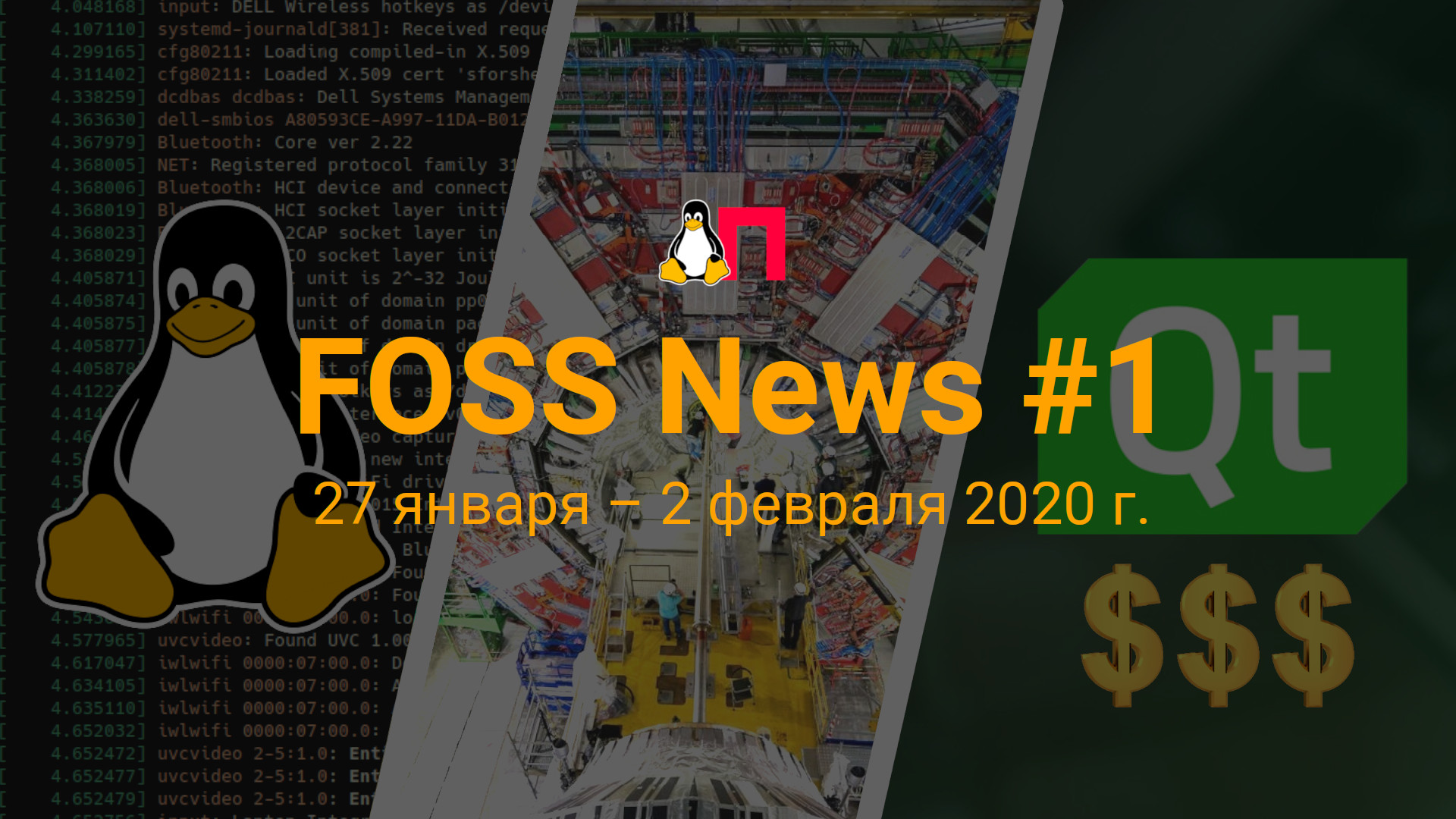 Hello everyone!This is my first post on Habré, I hope it will be interesting to the community. In the Perm group of Linux users, we saw a shortage of review materials on the news of free and open source software and decided that it would be nice to collect all the interesting things every week so that after reading such a review a person would be sure that he did not miss anything important. I prepared issue number 0, published in our group VKontakte vk.com/@permlug-foss-news-0, and the next No. 1 and the subsequent I think to try to publish on Habré. A few words about the format - I tried not to clog the review with only news about new releases of everything and everything, and focus on news about implementations, organizational news, reports on the use of FOSS, opening source codes and other licensing issues, leaving interesting materials, however leaving the news on releases of the most important projects. Who cares about the news about all releases - read www.opennet.ru . I would be grateful for comments and suggestions on the format and content. If something is not noticed and not included in the review - I will also be grateful for the links.So, in the issue No. 1 for January 27 - February 2, 2020 we read about:
Hello everyone!This is my first post on Habré, I hope it will be interesting to the community. In the Perm group of Linux users, we saw a shortage of review materials on the news of free and open source software and decided that it would be nice to collect all the interesting things every week so that after reading such a review a person would be sure that he did not miss anything important. I prepared issue number 0, published in our group VKontakte vk.com/@permlug-foss-news-0, and the next No. 1 and the subsequent I think to try to publish on Habré. A few words about the format - I tried not to clog the review with only news about new releases of everything and everything, and focus on news about implementations, organizational news, reports on the use of FOSS, opening source codes and other licensing issues, leaving interesting materials, however leaving the news on releases of the most important projects. Who cares about the news about all releases - read www.opennet.ru . I would be grateful for comments and suggestions on the format and content. If something is not noticed and not included in the review - I will also be grateful for the links.So, in the issue No. 1 for January 27 - February 2, 2020 we read about:- Linux 5.5 kernel release;
- Canonical’s first install of Windows 7 to Ubuntu;
- Kali Linux 2020.1 security research distribution release;
- CERN transition to open communication platforms;
- changes in Qt licensing terms (spoiler - not very good changes);
- part of the Xen XCP-ng project, a free version of the virtualization platform for deploying and managing the XenServer cloud infrastructure;
- preparation for the release of Linux Mint Debian 4;
- new communications and FOSS initiatives as a response.
Linux 5.5 kernel release
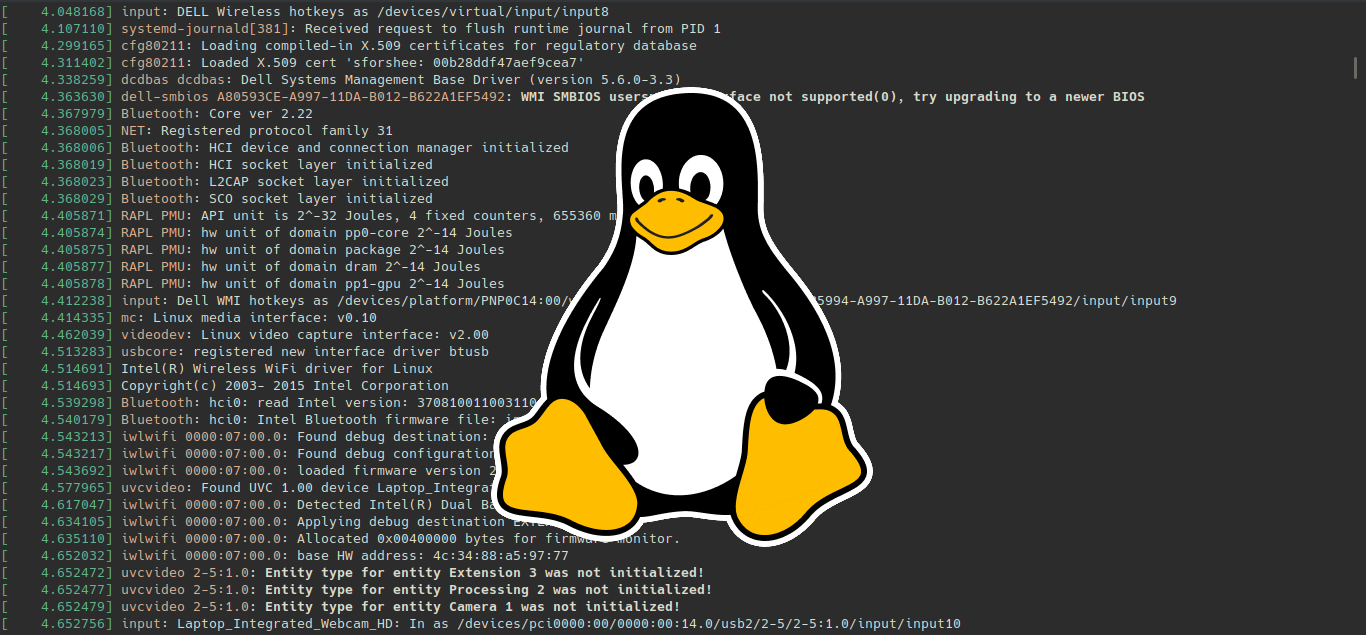 About two months after the release of LTS version 5.4, the Linux 5.5 kernel release is introduced.The most noticeable changes, according to OpenNet:
About two months after the release of LTS version 5.4, the Linux 5.5 kernel release is introduced.The most noticeable changes, according to OpenNet:- The ability to assign alternative names to network interfaces, now one interface may have several, in addition, the name size is increased from 16 to 128 characters.
- Crypto API Zinc WireGuard, 2015 , , .
- Btrfs RAID1, ( ).
- Live-, live- .
- unit- Linux kunit, .
- mac80211.
- Ability to access the root partition via the SMB protocol.
- Type verification in BPF ( for more details, see what it is, here ).
The new version received 15,505 edits from 1982 developers, 11,781 files were affected. About 44% of all the changes introduced in the new version are related to drivers, approximately 18% relate to updating hardware-specific code, 12% relate to the network stack, 4% relate to file systems and 3% relate to internal kernel subsystems.The Linux 5.5 kernel in particular is planned to be included in the Ubuntu 20.04 release in April LTS.DetailsCanonical has published the first part of the guide to the transition from Windows 7 to Ubuntu
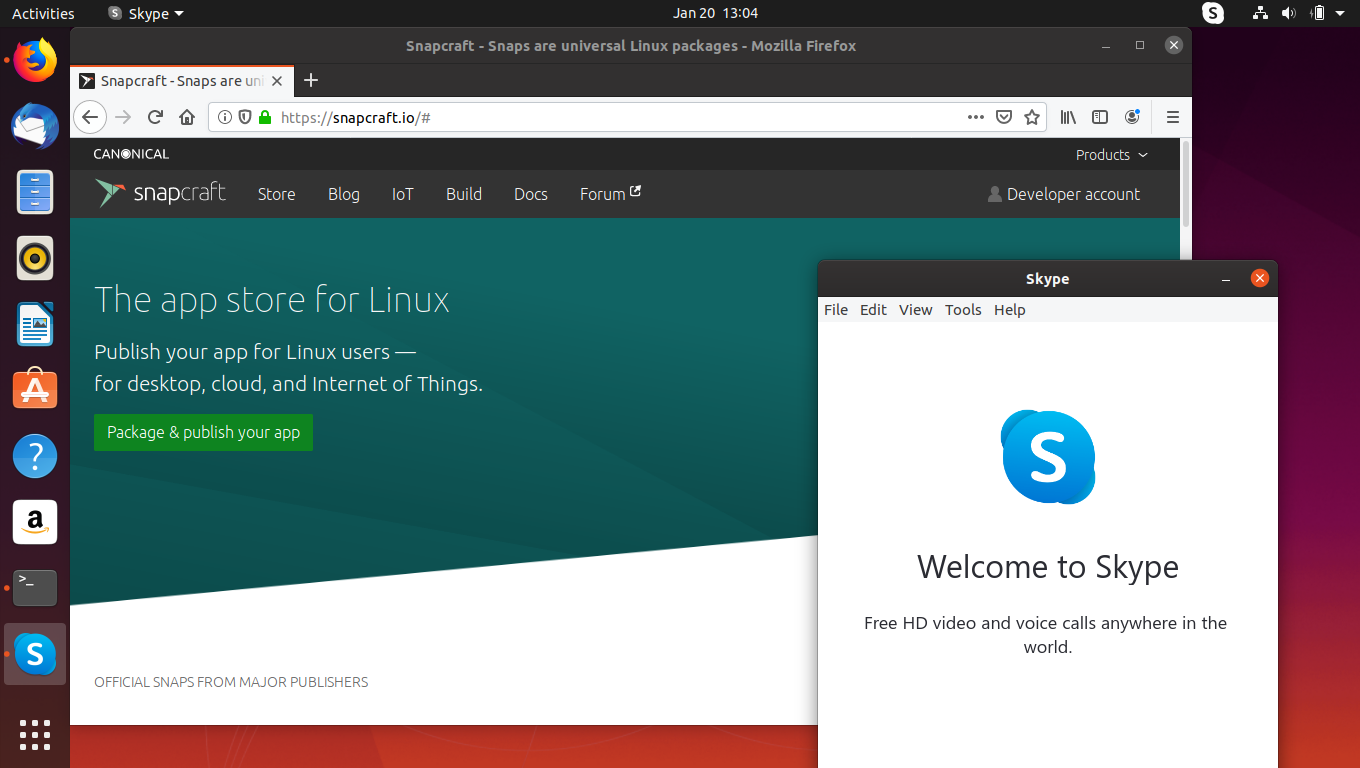 In the previous part of the review ( vk.com/@permlug-foss-news-0 ) we wrote about the activation of the FOSS community due to the discontinuation of support for Windows 7. First by publishing a list of reasons for the transition from Windows 7 to Ubuntu, Canonical continues this topic and opens the series articles with transition guidance. In the first part, users are introduced to the terminology of operating systems and applications available to users in Ubuntu, show how to prepare for the transition to a new OS and how to back up data. In the next part of the manual, Canonical promises to detail the installation process for Ubuntu.Details
In the previous part of the review ( vk.com/@permlug-foss-news-0 ) we wrote about the activation of the FOSS community due to the discontinuation of support for Windows 7. First by publishing a list of reasons for the transition from Windows 7 to Ubuntu, Canonical continues this topic and opens the series articles with transition guidance. In the first part, users are introduced to the terminology of operating systems and applications available to users in Ubuntu, show how to prepare for the transition to a new OS and how to back up data. In the next part of the manual, Canonical promises to detail the installation process for Ubuntu.DetailsKali Linux 2020.1 Security Research Distribution Release
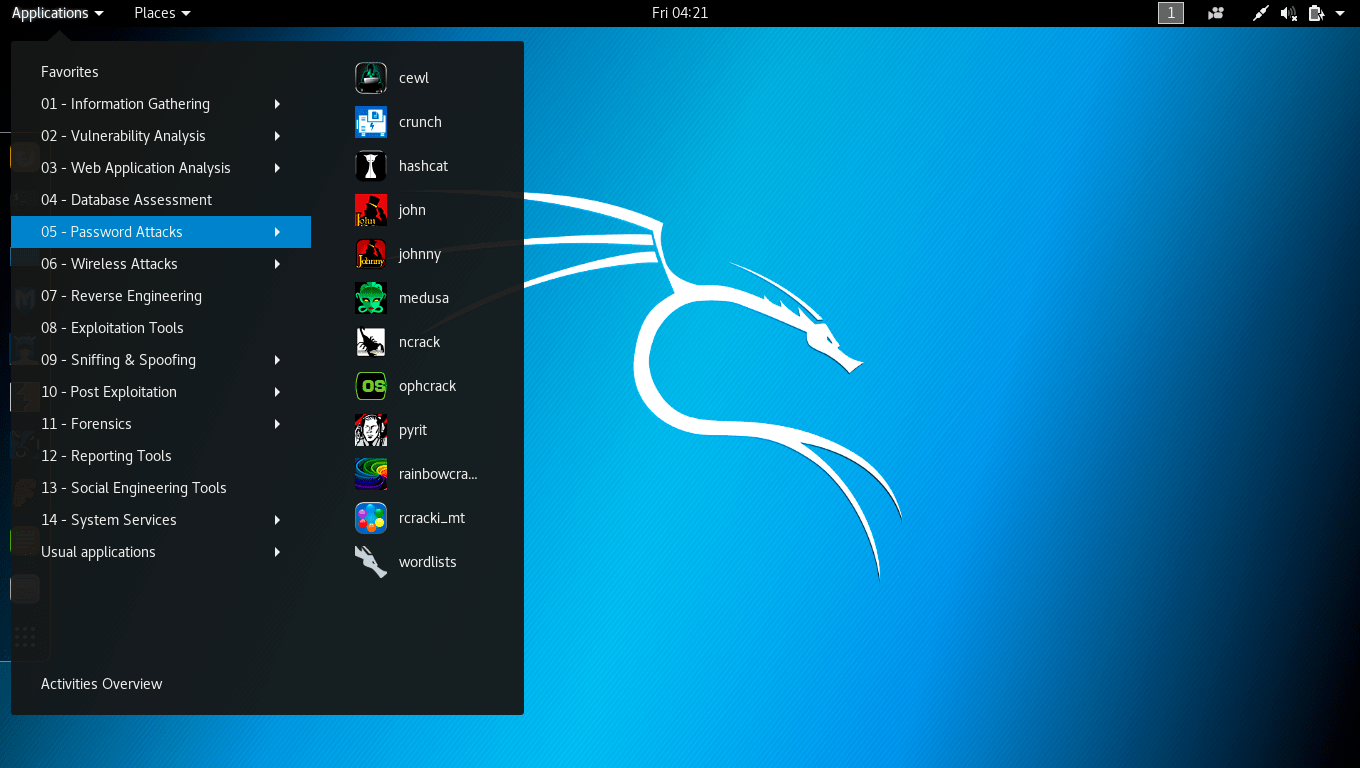 The Kali Linux 2020.1 distribution release has been released, designed to check systems for vulnerabilities, conduct audits, analyze residual information and identify the consequences of malicious attacks. All original developments created as part of the distribution are distributed under the GPL and are available through the public Git repository. Several options for iso-images are prepared for download, with a size of 285 MB (the minimum image for installation over the network), 2 GB (Live-assembly) and 2.7 GB (full installation).Builds are available for x86, x86_64, ARM architectures (armhf and armel, Raspberry Pi, Banana Pi, ARM Chromebook, Odroid). The default Xfce desktop is offered, and KDE, GNOME, MATE, LXDE, and Enlightenment e17 are also supported.In the new release:
The Kali Linux 2020.1 distribution release has been released, designed to check systems for vulnerabilities, conduct audits, analyze residual information and identify the consequences of malicious attacks. All original developments created as part of the distribution are distributed under the GPL and are available through the public Git repository. Several options for iso-images are prepared for download, with a size of 285 MB (the minimum image for installation over the network), 2 GB (Live-assembly) and 2.7 GB (full installation).Builds are available for x86, x86_64, ARM architectures (armhf and armel, Raspberry Pi, Banana Pi, ARM Chromebook, Odroid). The default Xfce desktop is offered, and KDE, GNOME, MATE, LXDE, and Enlightenment e17 are also supported.In the new release:- ( root). root kali.
- , .
- GNOME , ;
- ;
- «Kali Undercover», Windows, Kali ;
- cloud-enum (OSINT ), emailharvester ( ), phpggc ( PHP ), sherlock ( ) splinter ( );
- , Python 2.
CERN Facebook Workplace Mattermost Discourse
 The European Nuclear Research Center (CERN) has announced the cessation of the use of the corporate product for internal communication of Facebook Workplace employees. Instead of this platform, CERN will use open source solutions, Mattermost for quick messaging and chatting, and Discourse for lengthy discussions.The rejection of the Facebook Workplace is due to concerns about privacy, a lack of control over their data and a desire not to depend on the policies of a third-party company. In addition, platform tariffs have been changed.On January 31, 2020, migration to open source software was completed.Details
The European Nuclear Research Center (CERN) has announced the cessation of the use of the corporate product for internal communication of Facebook Workplace employees. Instead of this platform, CERN will use open source solutions, Mattermost for quick messaging and chatting, and Discourse for lengthy discussions.The rejection of the Facebook Workplace is due to concerns about privacy, a lack of control over their data and a desire not to depend on the policies of a third-party company. In addition, platform tariffs have been changed.On January 31, 2020, migration to open source software was completed.DetailsQt Framework Licensing Changes
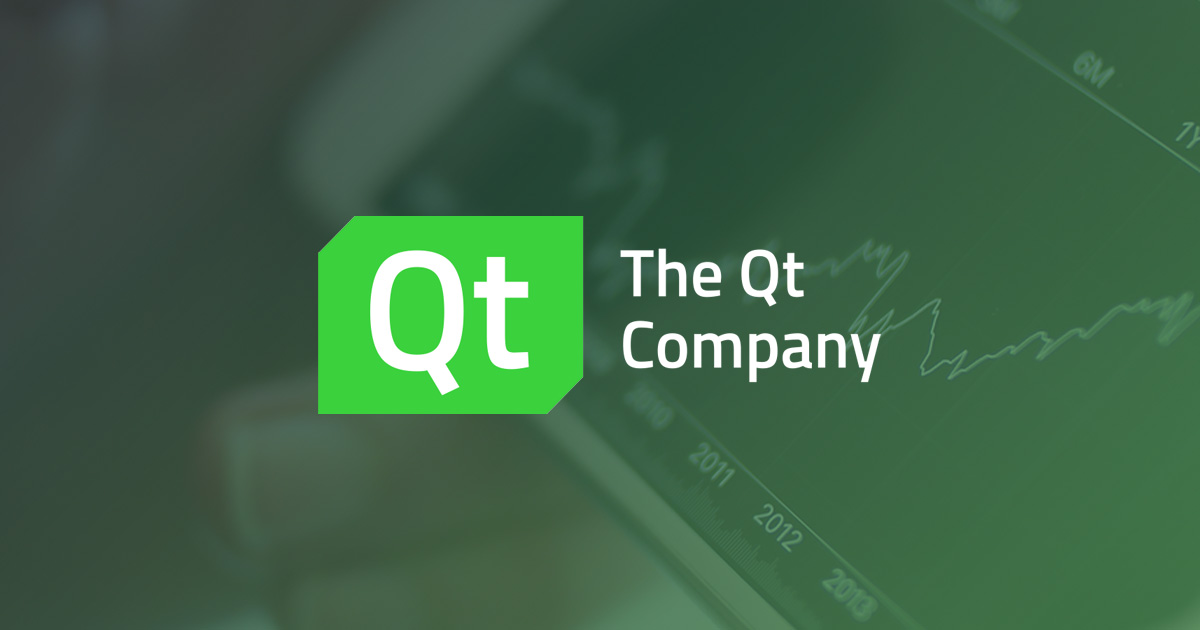 The news mainly concerns developers and companies using Qt-based products.Qt Company, which supports and provides consulting services for the popular cross-platform C ++ framework Qt, has announced a change in the terms of access to its products.There are three main changes:
The news mainly concerns developers and companies using Qt-based products.Qt Company, which supports and provides consulting services for the popular cross-platform C ++ framework Qt, has announced a change in the terms of access to its products.There are three main changes:- To install Qt binaries, you need a Qt account.
- Long-Term Support Editions (LTS) and an offline installer will be available only to commercial licensees.
- A new Qt offering for small businesses will appear.
The first item delivers only some inconvenience, you have to register on the company's website. However, given the increasingly growing trend in the collection of personal data by all who can and frequent scandals with leaks, this is unlikely to please anyone.The second point is significantly more unpleasant - now the Qt-dependent project communities will have to put more effort into supporting the code. For example, LTS versions of distributions will either need to independently maintain LTS Qt branches to introduce security updates and other important ones, or update to the latest versions, which can lead to problems with programs on this framework, all of which are unlikely to be able to quickly port their code.Third, they return a license for start-ups and small businesses for $ 499 per year, which includes all the usual features except for distribution licenses and with the exception of full support (only installation support is provided). Such a license will be available to companies with income or financing of less than $ 100,000 per year and less than five employees.DetailsXCP-ng, a free version of Citrix XenServer, is part of the Xen project
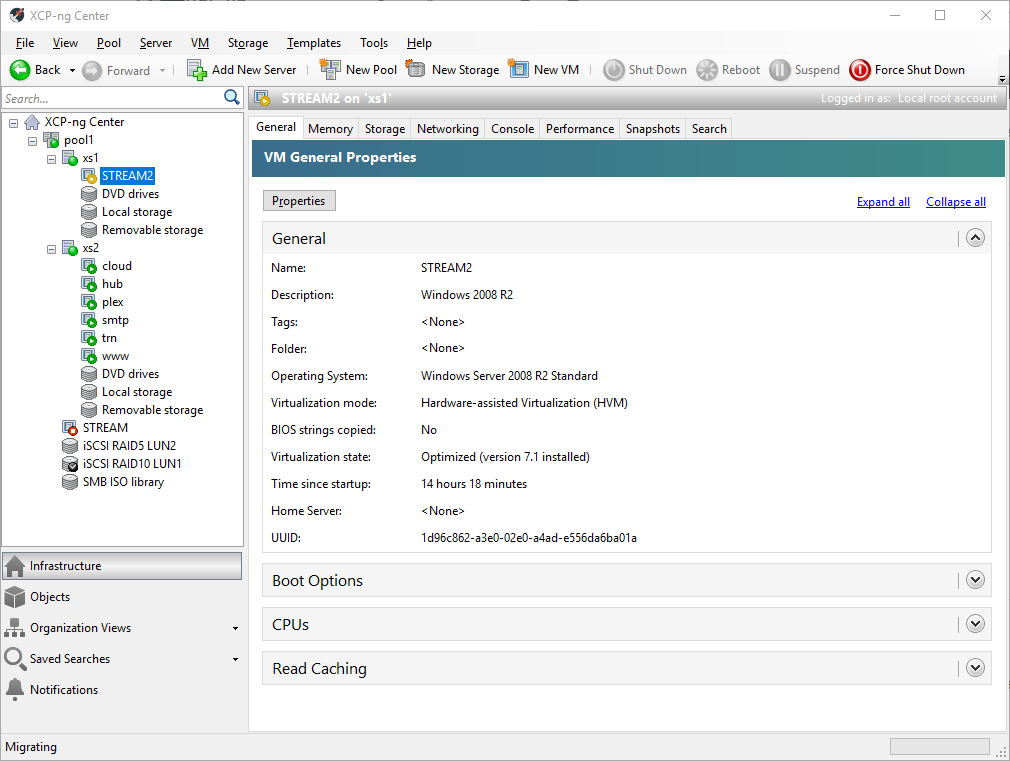 The developers of XCP-ng, a free and free replacement for the XenServer proprietary cloud infrastructure management platform (Citrix Hypervisor), have announced their accession to the Xen Project, which is being developed as part of the Linux Foundation. The transition to the Xen Project will allow us to consider XCP-ng as a standard distribution kit for deploying a virtual machine infrastructure based on the Xen cross-platform hypervisor distributed under the terms of the GNU GPL v2 and XAPI. XCP-ng as well as Citrix Hypervisor (XenServer) have a simple and intuitive interface for installation and administration and allow you to quickly deploy the virtualization infrastructure of servers and workstations and include tools for managing, clustering, sharing resources, migration and working with storage systems.Details
The developers of XCP-ng, a free and free replacement for the XenServer proprietary cloud infrastructure management platform (Citrix Hypervisor), have announced their accession to the Xen Project, which is being developed as part of the Linux Foundation. The transition to the Xen Project will allow us to consider XCP-ng as a standard distribution kit for deploying a virtual machine infrastructure based on the Xen cross-platform hypervisor distributed under the terms of the GNU GPL v2 and XAPI. XCP-ng as well as Citrix Hypervisor (XenServer) have a simple and intuitive interface for installation and administration and allow you to quickly deploy the virtualization infrastructure of servers and workstations and include tools for managing, clustering, sharing resources, migration and working with storage systems.DetailsLinux Mint Debian 4 distribution is getting ready
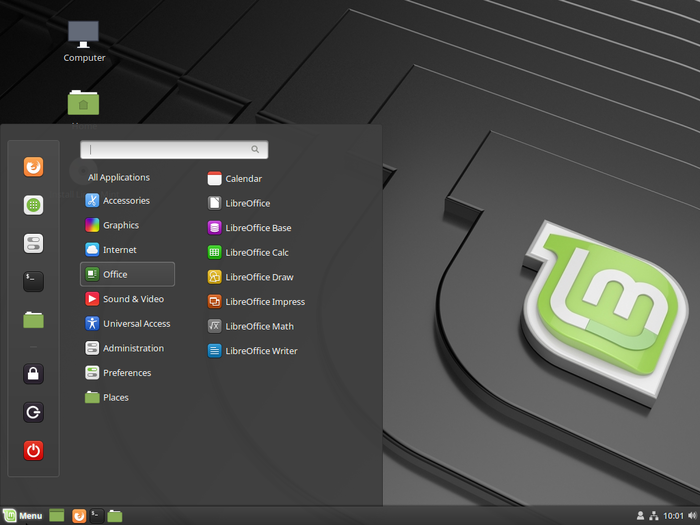 In addition to the Linux Mint 20, which will be released this year and will be based on Ubuntu 20.04 LTS, the Linux Mint team is preparing Linux Mint Debian 4 (LMDE) based on the Debian 10 distribution. They promise to support HiDPI matrices and improve the Mint X-Apps subproject from the new one. , Cinnamon desktop, encryption, support for NVIDIA cards and more.Details
In addition to the Linux Mint 20, which will be released this year and will be based on Ubuntu 20.04 LTS, the Linux Mint team is preparing Linux Mint Debian 4 (LMDE) based on the Debian 10 distribution. They promise to support HiDPI matrices and improve the Mint X-Apps subproject from the new one. , Cinnamon desktop, encryption, support for NVIDIA cards and more.DetailsMiscellaneous
 He indirectly refers to FOSS, but could not mention it, especially in connection with the news from CERN parsed above.January 28th was the International Day for the Protection of Personal Data. On the same day, the new Minister of Digital Development, Telecommunications and Mass Media of Russia, Maksut Shadaev, offered to provide security officials with online access to various Russian data ( details ). Previously, such access was apparently not so simple.And the trend is that we are becoming more and more “under the hood”. For those who cherish the "guaranteed" by the Constitution privacy, personal and family secrets, the secrecy of correspondence, etc., once again the question arises of choosing what to use and who to trust. Here more than ever, decentralized FOSS network solutions and generally free and open software become relevant. However, this is the topic of a separate review.That's all.PS: In order not to miss the new issues of FOSS News, you can subscribe to our Telegram channel t.me/permlug_channel
He indirectly refers to FOSS, but could not mention it, especially in connection with the news from CERN parsed above.January 28th was the International Day for the Protection of Personal Data. On the same day, the new Minister of Digital Development, Telecommunications and Mass Media of Russia, Maksut Shadaev, offered to provide security officials with online access to various Russian data ( details ). Previously, such access was apparently not so simple.And the trend is that we are becoming more and more “under the hood”. For those who cherish the "guaranteed" by the Constitution privacy, personal and family secrets, the secrecy of correspondence, etc., once again the question arises of choosing what to use and who to trust. Here more than ever, decentralized FOSS network solutions and generally free and open software become relevant. However, this is the topic of a separate review.That's all.PS: In order not to miss the new issues of FOSS News, you can subscribe to our Telegram channel t.me/permlug_channelSource: https://habr.com/ru/post/undefined/
All Articles